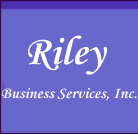     |
||
| WHEN TO SET UP A CORPORATION OR OTHER BUSINESS ENTITY
By Peter Jason
Riley, CPA I think of this as the "should I incorporate?" discussion because that invariably seems to be the opening volley on this topic. The artist will generally have talked to a colleague or family member who has told them they must incorporate immediately for whatever purpose, most frequently for the extensive tax benefits offered. So let's look at the choices the artis has for setting up a business entity: Sole-Proprietorship, Partnership, Corporation, Limited Liability Company.
The Sole-Proprietorship The default business organization is the sole proprietorship, which is how most artists operate. Until the artist sets up a formal entity, he or she is by default a sole-proprietor. The sole-proprietor simply means one owner (even though a husband-wife team can function as joint proprietors). By default, you will be automatically set up as a sole proprietorship if you do nothing else. The main feature of this form is that it is identified and intertwined with you, which gives it both strengths and weaknesses. If the business makes a profit, it is automatically income for you. If the business incurs a debt, it is your personal debt. If the business gets sued, you will be sued personally as well. It gives you complete flexibility that enables you to instantly shift the direction, policies and focus of your company. But, if there is a problem, any damage can potentially extend into your personal life. To limit this potential liability, you may choose to set up a "single-member" LLC. The "single member" LLC customarily operates as a sole-proprietor and might offer some liability protection (ask your attorney about this before moving forward).
The Partnership When talking to clients I describe the partnership as a multi-person sole-proprietorship because these two entities are taxed in a very similar manner. The sole-proprietorship files its taxes as part of the owners Form 1040, whereas the partnership files its own separate income tax return (on federal Form 1065) that reports the total income and expenses of the business. The partnership then passes the net, "bottom line" income or losses directly to the personal income tax returns of the partners via the federal Form K-1. This means that the partnership itself almost never pays any income tax directly, but passes the income or loss directly to the partners to be dealt with on their personal returns. You can see why partnerships are often referred to as "flow-through" entities, i.e. the income or loss "flows through" the partnership onto the partner's personal income tax return. The partnership does have the unique and critical tax advantage of "special allocations." Simply put, special allocations allow the partnership to customize the distribution of income and loss by mutual consent through he use of the partnership agreement. For instance, two partners may own the business 50%/50%, but choose to split any losses 75%/25% if that yields a better tax result for them. Partnerships can also, if properly structured, have tax advantages relating to film and sound recording activities.
The Corporation The third form of business is the corporation. Incorporation gives two main advantages:
For tax purposes there are two main types of corporations, the subchapter “C” and the subchapter “S” (the letters refer to subchapters of the tax code). Both are corporations in the legal sense but the taxation of income and losses is handled differently.
The Limited Liability
Company A relatively new form of business entity is the LLC, or Limited Liability Company. The Internal Revenue Service does not have an "LLC" tax forms. Probably the most common business form LLC's take for tax purposes is as a partnership but they can also be S corporations and sole-proprietors. If you are considering setting up your business as a partnership, look long and hard at the LLC it is generally preferable over the standard partnership. The LLC combines many of the features of a partnership with those of an "S" corporation, without the restrictions that applied to S corporations. It allows the reporting of income or loss directly on the personal income tax returns of the "partners," (or "Members" in the parlance of an LLC), but provides some of the liability protection of a corporation. The LLC is also a "flow-through" entity that generally files the same federal income tax forms as a partnership, Form 1065, and it does allow for the use of "special allocations" we discussed in the section on partnerships. As with a standard partnership you do need two individuals to set up an LLC although a "single-person" LLC, can be established for a sole-proprietorship.
When and Which Entity
Would the Artist Set Up? In essence artists have three choices of business entity, the sole-proprietorship, partnership/LLC and corporation. First the artist's decides whether he or she even needs to set up a separate business entity. Having decided, he or she must determine the type of entity to create. Deliberations should involve both an attorney and a tax professional. I would generally advise the artist to never set up a business entity without obtaining separate legal and financial/tax advice. Your attorney will explain the legal benefits of setting up a business entity as well as actually create the entity in the legal sense. Your accountant and tax advisor will clarify what new expenses; responsibilities and functions will be entailed in your new business entity. Commonly, the attorney and tax professional will need to confer on behalf of their client because the legal and financial matters are interrelated. What occasions considering the establishment of a business entity is that the artist has an issue or problem that cannot be solved any other way. Unless there is a clear need or reason to set up an entity, don't consider it. They are costly to set up and maintain unless they can serve a clear and identifiable purpose. Furthermore they complicate the operation of your business. Accounting and tax filings as well as the associated fees increase. With the help of an attorney and an accountant the artist needs to do a careful cost-benefit analysis, which will help him or her, decide whether it is worth setting up the business entity (a cost-benefit analysis is where you weigh the cost incurred vs. the benefit received). It might be that personal liability is the issue for the artist. A cost-benefit analysis may find that insurance is a more effective solution. An artist desiring to bring someone into the business might be better served by simply hiring an employee. So, what are some of the situations or needs that might finally lead the artist to set up a separate business entity?
2017 TCJA - How has tax reform changed this discussion The biggest gamechanger in the 2017 TCJA tax bill is the new 20% net business income deduction (Section 199A). Simply put, this bill provides a new 20% "Qualified Business Income Deduction" calculated on your net business income. It does NOT replace your normal business deductions (wireless, rent, payroll, home office, meals, travel, commissions, supplies, streaming services etc.) but provides an additional "free" deduction based on your net business income. I often characterize this new deduction as simple until it isn't, but I will try here to give the reader a basic understanding. For folks in creative fields there are 2 limitations in the calculation; Recent regulations seem to have clarified that individuals in the performing arts (actors and musicians for example) are considered part of the laws "specified service businesses" and are thus prohibited from claiming the 20% deduction UNLESS their taxable income is less than $157,500 if single and $315,000 if married (after that it phases out over the next $50,000/$100,000 of taxable income). If the actor, musician or performing artists income is above these stated amounts then as "specified service businesses" they will NOT receive any tax benefit from 199A. Based on this, we see little reason for these individuals to set up a formal business entity, such as an LLC or corporation to take advantage of this new tax provision, again, if the creative persons taxable income is below $157,500 if single and $315,000 if married threshold. Current expert interpretation of 2018 Internal Revenue Service regulation tells us that writers and visual artists are NOT considered part of the new laws "specified service businesses" and have no income limitation regarding the ability to benefit from the TCJA 199A deduction. For the more successful writers and visual artists it could be imperative to implement an S corporation tax structure as the need for payroll is critical. The successful writer or visual artists, who, remember is NOT considered a "specified service business" under the 2017 TCJA, can be left with no 199A deduction if they are in a business structure that does NOT have a payroll deduction. That is because in higher incomes (above the $157,500 if single and $315,000 if married threshold) an alternative 199A calculation kicks in; a deduction that is based on 50% of payroll. In this case the writer or artists sets up what is essentially a "loan out" corporation and pays themselves payroll as an employee of their own company. Please keep in mind that this is a VERY basic overview of this complex law, remember I said earlier that Section 199A of the 2017 TCJA tax bill is simple until it isn't, so make sure you address these changes with your tax professional as you do your tax planning. But you can see, the type of creative field you are working in AND the level of income one is expecting is critical in guiding decisions on tax structure regarding this new 199A deduction.
Taking our four artists, let's look at when and why an artist might chose to set up a separate business entity. An actor/actress is beginning to hit it big and make some serious money. Under 2017 TCJA tax reform she has lost the ability in 2018 to take employee business expenses so she decides to set up a corporation for her acting business (sometimes referred to as "loan-out" corporation). With this setup the film companies would pay her corporation for her services and she would in turn be an employee of her own corporation and be able to take all of her related tax deductions as a corporate business expense. The benefits to Ima could be that (1) she is able to shift income to later tax years and allow her to delay payment of income taxes, (2) she might save payroll taxes (FICA taxes) by operating as an "S" corporation, (3) she may use the corporation to shift income to other members of her family or household (and into lower tax brackets). The corporation would help her limit her personal liability, and at the same time potentially lower her chances statistically of being audited and it would isolate her business activity from the rest of her life. She is also considering an LLC to produce her own film, book or other project. The project would be produced inside the LLC, and when the project was sold the LLC would distribute the profits to the investors/members and perhaps dissolve. If she already has the corporation why would she set up a separate LLC for her film project? She would do this to isolate this one project from the rest of her business activities. From both a legal and financial point of view she would want to do this in order to not involve the individuals that are members of the LLC in her primary operations inside her corporation. Also since the LLC operates (for tax purposes) as a partnership she may have some advantages in writing off the costs of the film.
A musician needs some investor money in order to make a new recording with a big band. He could set up an LLC, much the way our actress did, to attract investors and isolate that activity, and later to channel the profits (or losses) directly to the investors. His tax advisor also discussed setting up a music equipment leasing company that would own all the equipment used by the band on the tour. The musicians LLC would then lease (pay rent) to the leasing company for the use of the sound and lighting equipment. If the leasing company were an LLC it would give the musician an additional layer of liability protection. The leasing company can be set up by the musician and his attorney using a generic name. A generic name gives the musician some privacy, in that people need not know that the musician owns the leasing company. Such a move can be very tax efficient as it gives the musician another means of receiving profits from the band's activities. Should the musician's songwriting royalties grow, as it seems to be now he is considering setting up a second publishing LLC (or other business entity) to control his songwriting activities.
Suppose our painter befriends an individual who becomes her business manager and agent, and as such is a vital and essential part of her artistic activities. The artist decides to make this person a legal part of her business by setting up a corporation or LLC (either one would probably work, but the LLC would be more flexible and user friendly) and giving him or her a real equity stake in her artistic life. By making this individual a shareholder or member of her business the artist legally recognizes this person's importance in her business life and will be able, depending on how the entity is structured, to give him or her a share of the profits. The artist's advisors told her that she could simply hire her friend as an employee but the artist preferred setting up the business entity. An artist has an investor interested in funding the publication of a limited edition book of her works, and for this her attorney and tax advisor both recommended an LLC. The LLC will be structured to receive cash from the investor. In turn, it will receive all the income for book sales, pay all the expenses of the publication, then distribute the net profits (or loss) to Liz and the investor according to their LLC agreement. After all the books are sold, the final profits will be distributed; the LLC would file a final income tax return and fold.
A writer has his first big year when one of his books is sold for a major film adaptation. He decides to incorporate his writing activities and sets up an "S" corporation, a "loan out" to take advantage of the 199A "net business income deduction." His agent or publisher will pay his royalties directly into the corporation from now on and he will be able to take all his writing deductions as direct expenses on his corporation tax return. The corporation will also allow him to put some family members who are helping him with his correspondence and research on his payroll, thus diversifying his income into their lower tax brackets. The corporation will also give the writer some liability protection. With knowledge gained from this recent film experience, our writer decides to try and adapt and make a film of another of his books. He finds some investors and sets up an LLC to act as a production company for the film project, because he does not want the investors to be a part of his "S" corporation. If the project doesn't succeed the LLC investors/members will most likely be able to use the losses on their personal income tax returns. If it succeeds and sells the income from the film will become income on the member's income taxes.
In closing Some readers may wonder whether this type of discussion would happen at the beginning of an artist's career? It may appear to them that this is one of the first matters the artist would discuss. Yet, at the beginning of their career very few artists would have any need to set up a formal business structure. Even many successful artists never set up any formal business entity. At the early stage of an artist's career it would rarely be cost effective, and more importantly the direction and scope of the artist's ultimate activity would be insufficiently developed to make effective decisions regarding business structures. By the way, most of what we have talked about regarding rules relating to income and expenses still applies to any structure you may happen to operate within. While the mechanics may change, in general, the IRS view of taxable income and what it considers a justifiable expense does not alter much across the spectrum of different business entities. Having said that, the 2017 TCJA tax reform has clearly impacted this conversation based on income and the type of work the artist does. Under tax reform the union actor/performer might want to set up a "loan out" corporation to continue to take work related expenses while the successful author might be led to set up an S corporation in order to leverage the 199A deduction. Please keep in mind that we have barely scratched the surface on this very complex topic. You can see this whole subject is a balancing act between financial, legal, estate and income tax concerns. Any decisions are subjective and relate directly to personal financial goals, so what works for the colleague you spoke to at a party may not work at all for you. Be VERY careful of anything that sounds like a boilerplate solution. I feel that most financial decisions are far more personal than most people realize, and business structure is very much in that camp. Make any decisions in this area after careful discussions of your personal desires, goals and concerns, which would include other strategic issues such as estate planning. © Copyright 2001-2026 Riley Business Services 978.270.9260 All Rights Reserved |